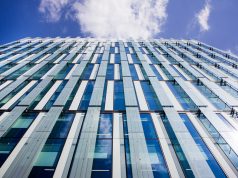The construction industry is one of the UK’s largest, and of fundamental importance to the continued growth and development of urban and suburban centres across the country. The construction industry is facing something of an existential threat, though, as growing concern regarding the climate crisis has renewed public and private focus on unsustainable construction materials and processes.
Meanwhile, energy crises and supply issues are set to constrain growth in the industry, as cheap, mass-manufactured materials are harder and more expensive to procure. The market, as such, is a lucrative one for businesses aligned with sustainable messaging and ecological ambitions. But how can a sustainable construction business properly manage itself for the betterment of its long-term prospects?
Fostering a Positive Company Culture
While the majority of company growth security comes from the way it navigates the market and economy, internal pressures are often the easiest to ignore. The company culture should positive and well-preserved, in order to bolster your business’ reputation and minimise staff turnover. A commitment to sustainable efforts should be central to that messaging, and, when coupled with eco-friendly perks and benefits, can keep your staff happy.
There are functional ways in which you can ensure employee satisfaction, beyond the provision of perks and benefits. Ensuring company processes are robust, and that health and safety procedures are airtight and followed at all times, will increase trust and improve your brand’s reputation on a wider scale. Simple endeavours like the provision of adequate personal protective equipment ensure legal compliance and staff trust simultaneously.
Networking
Networking is an essential aspect of operating within any industry, but especially so with construction. Even larger, industry-leading construction conglomerates network on a regular basis to remain competitive and to maintain an understanding of the industry landscape.
Different businesses play to different strengths, and have their own connections that can help a new business or strategy thrive in difficult times. As a sustainable business, your USP may be of interest to other vendors within your local sphere. Attending industry conferences and local events can ensure you remain abreast of both the local and national construction landscape, and build useful contacts to further your own strategy.
Following Trends
As mentioned earlier, sustainability is a key issue at the present moment – and an industry in and of itself. Sustainable construction practices rely on extensive research and development in other industries, from the production of raw materials with low environmental cost to the invention of low-carbon industrial equipment.
It is important, then, for the sustainably-minded construction business to keep its finger on the pulse of the sustainability movement. New innovations can quickly outmode the old, leaving room for competition to usurp your unique industry position. The advent of new techniques and materials may also present you with opportunities for expansion or transition, giving you longevity in other ways.














